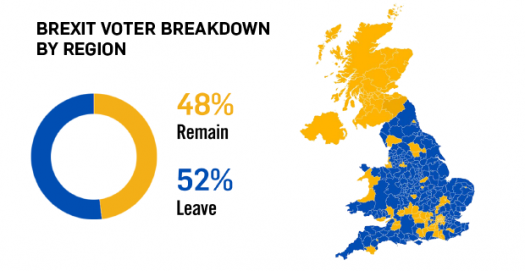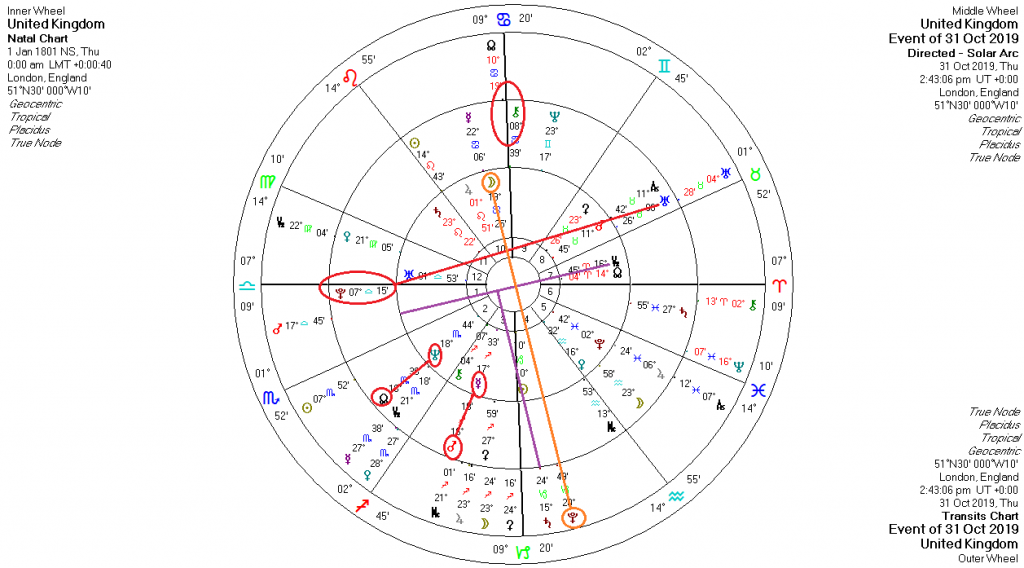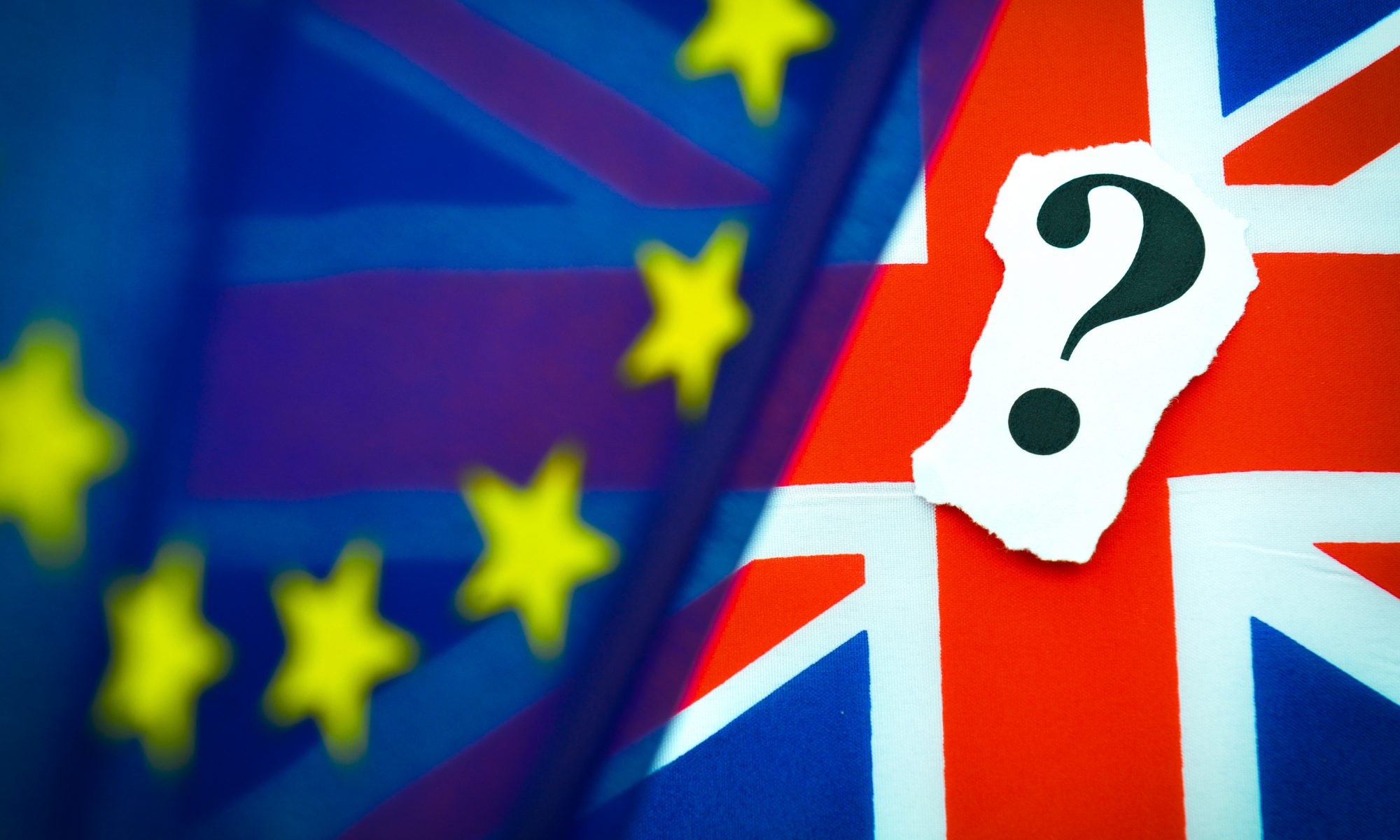With the recent announcement by Theresa May that she will be stepping down on June 7th, speculation is rife about who will take her place, and more to the point: What will happen with Brexit? From the last article, there is a forecast that very great changes are coming for the UK. And though that might sound ominous to some readers, it need not be so. There is a wider question, however, which is, what is to happen with the UK? A lot depends of how things go with Brexit. Halloween may be more trick than treat for the UK.
The Tory government of Theresa May, the same one that is largely backing but which has botched Brexit, now has to choose a new leader after the 7th of June. This all takes place in the backdrop of the out-of-bounds Mars, which goes back in bounds on the 13th. It also happens in the backdrop of transiting Saturn opposite the UK Moon, the latter ruling the 10th house (the sitting government). Transiting Saturn was exactly opposite that Moon the very day Theresa May tendered her resignation.
The clear favorite to take her place is Boris Johnson, who is adamant he will push Brexit through. We have heard those words before. But before we look at what might eventuate, have a look at the field of candidates vying for her old post. There are eight candidates who have put their names in the hat for the position of the next British PM. The charts are linked to their names, and the names are listed roughly in order of the pundits’ score on winning the seat. They are:
- Boris Johnson: former Foreign Secretary and former Mayor of London. Journalist. The clear favorite among pundits. Strong for No-Deal Brexit.
- Dominic Raab: former Brexit Secretary. Strong for No-Deal Brexit
- Michael Gove: Environment Secretary. Professed unity candidate, would seek for a deal without a time limit for doing so, but wants to deliver Brexit. Prone to gaffs and controversy. No-confidence vote against him as Education Secretary.
- Andrea Leadsom: former Leader of House of Commons and former Environment Minister, originally pro-Remain, later changing her tune.
- Jeremy Hunt: Foreign Secretary. As Health Secretary spearheaded efforts to privatize the NHS. Pro-Israel, pro-Saudi. Strong for No-Deal Brexit.
- Rory Stewart: Secretary of State for International Development. Originally a Remainer, but supported May’s deal for leaving, saying Parliament needed to respect the outcome of the vote. Wants to set up a Citizens’ Assembly to thrash out a Brexit compromise, with the Archbishop of Canterbury as mediator.
- Sajid Javid: Home Secretary, former Deutsche Bank executive. Pro-Israel. Insists a No-Deal Brexit will not harm the UK.
- Matt Hancock: Health and Social Care Secretary. Says Brexit Party is a protest movement with no answers.
- Esther McVey: MP for Tatton. Work and Pensions Secretary. Staunch defender of universal credit. Hardliner on poverty.
- Kit Malthouse: Minister for Housing and Planning. The longest of the long shots and relatively unknown, next to McVey. Presents himself as a fresh face with new ideas.
We don’t have birth times on any of these people, so consideration of the angles and the Moon in any of the charts is speculative. And with the exception of McVey, none of these candidates looks in the least ‘presidential’ with regard to their aspects. Theresa May didn’t, either. It would take a certain combination of factors in a chart to produce a person capable of doing the job of Brexit. And without the angles and the lunar degree, it is even more difficult to see who would be capable of pulling off a Brexit deal or a no-deal Brexit. For what it is worth, then, with any of these people at the helm of the Tory government, it looks like more of the same as we had with Theresa May, maybe a little better, maybe a lot worse. But with the chart of the UK, later, it looks like it may not matter anyway, as to who gets the job.
A quick review of their voting records gives a pretty good overview of how the UK has fared under the leadership of the Conservatives – pro-business, pro-deregulation, privatization, cuts to social programs, anti-immigrant, tax cuts for the wealthy, anti-rent control/public housing. These are representative of the people who pushed for Brexit. The picture gets even more interesting and revealing when we look at the main figures behind Brexit – Nigel Farage, Boris Johnson, George Osborne, Matthew Elliot, Daniel Hannan, Douglas Carswell and Michael Gove, among the better known.
There is not too much to say about Farage and Johnson, as they are quite well known and constantly in the media. As to the others, George Osborne is the man best known for axing student grants, to the tune of a billion pounds a year. He wants loans to pay for student fees, which would place UK students in the same boat as that of US university students, paying off student loans into their twilight years, or defaulting on payments altogether. Matthew Elliot is not an MP, but instead is a political strategist and lobbyist, having made his wealth via the internet, basically an opportunist.
Daniel Hannan is a Conservative MP, a free trade advocate and globalist, libertarian in his economic views, pro-austerity and very pro-US (Atlanticist). Douglas Carswell campaigned on an anti-sleaze platform and then got caught out in expenses scandals. He has been cast as a political maverick, but started in the Conservative Party. To put a point on it, their Brexit campaign for ‘taking back control’ had nothing to do with the British people and everything to do with getting out from under EU regulations, which they saw as stifling their own agendas.

Brexit has divided the UK. It has pitted the moneyed interests against the populace. The Scots and Northern Irish voted to remain in the EU. Wales and rural England voted to leave. The major cities like London by and large voted to remain. And the younger voters tended to vote remain. That leads to the truth behind Brexit, which is that it was targeted toward and pitched at the people who were the most disadvantaged by the very policies enacted by the people behind the Brexit campaign. But those voters were told that it was EU policy behind their plight. The EU did not close the factories, privatize public services and introduce austerity measures to the UK. That was all done by UK politicians, started under Thatcher and continued over time to the largest extent by the Tories. Labour has played a hand in it, too, since they bought into the Thatcherite policies.
But now, the very people who pushed Brexit cannot seem to get it pushed through. And they paid a price and were sent a message in the recent EU elections, coming in last among the parties running for those parliamentary seats, aside from Nigel Farage. Given all the preceding, do voters in the UK really think it will be any different with a new leader picked out of the preceding list? And especially considering that the leading contenders all stood against Theresa May after Cameron stepped down, and were soundly rejected? Unless something radically changes in the UK Parliament, the UK will come up to the Halloween deadline for leaving and will yet again have to ask for another extension. The EU has already stated there will be no further deals negotiated, and Parliament has voted out the possibility of a no-deal Brexit. If the UK is still in the EU after Halloween, then we can probably expect a vote of no-confidence against the government and new elections.
And as for the people who pushed for Brexit, they are beginning to face the wrath of their past supporters. Nigel Farage has found a sudden penchant for wearing milkshakes when he is out and about. Jacob Rees-Mogg was recently ATTACKED!, as the headline screamed, via having a bottle of water tipped on him by a protester. The horror. And now Boris Johnson has found himself on the dock in court for his tall tales during the Brexit campaign.
As for how the British public feels about their elected leaders, especially the Tories, the following summarizes their sentiments:
“…These privileged and disproportionately white, male, wealthy, privately educated, Oxbridge and social studies graduates often can’t understand, let alone truly represent, most people in the UK whose situations and choices are outside their own life experiences. MPs backgrounds influence the kinds of policies they pursue, from housing to education. For example, it is unsurprising that the Conservatives voted down a law requiring homes to be fit for human habitation, when so many of them are landlords…”
So, the EU and immigrants get blamed for the problems of the citizens of the UK. We find very similar sentiments in the US for problems there, when in point of fact it is the career politicians who have legislated most of the policies that have caused the damage to their societies. And that brings us to the astrology of the UK over the next year.
There is currently a direction of Pluto to the UK ascendant, which will be exact the month before Halloween. Transiting Uranus will make a retrograde station with a quincunx to that in August, showing a crisis point and a change in the atmosphere. With what we are about to see, it does not look favorable to the government.
Solar arcs and transits of Pluto to the Ascendant can indicate subterfuge and sabotage, especially in a mundane chart. We saw such a scenario in the US with 9/11. At the time of that event, transiting Pluto was on the US Ascendant, and what followed subverted the rights of Americans and threw the Middle East into turmoil. The events that followed have cost the US taxpayers trillions of dollars and cost millions of lives overseas, as well as the reputation of the US being thrown to tatters. Brexit has done similarly to the British reputation.
Preceding the solar arc of Pluto to the UK Ascendant, there was a solar arc of Chiron to their Ascendant, described next. We might be prone to think that things will resolve for the UK after the direction of Pluto to their Ascendant is finished, but there is more to come. It will probably be better to take another deep breath. The solar arc is exact at the end of September, as stated. But just when we thought the scene might be clarifying, there is then a solar arc of Chiron to the MC (the sitting government). That in itself might not seem to be much, but along with that direction come all the midpoint trees associated with it. And that starts to come into orb at the end of June – next month.
That Chiron direction is not all doom and gloom, of course. But if we want an idea of what it can bring, we need only look at when it was directed to the Ascendant. It began its direction to the square of the UK Ascendant in April of 2017. That was the month Theresa May called for the snap election, the one that cost the Tories their majority. The horizon axis deals with the public mood and with constitutional affairs. Now, with the conjunction to the MC it is all about the government itself. And with Pluto still on the horizon axis, the public is very divided, as is Parliament. But really, what else would we expect?
Just what are those midpoint trees with Chiron, then? Well, Pluto is a part of it, and the directions of Chiron lead those of Pluto by a year-and-a-half. So, toward the end of next year, Pluto will square the UK meridian axis. The UK is far from being out of the woods. Once the constitutional/treaty side of Pluto’s direction is finished it will go on to a reckoning of the very structure of the UK government, and perhaps of the UK itself. Ninety years ago, when directed Pluto was conjunct the MC, the UK finally recognized the Irish Free State as separate from the UK, after Irish independence a few years before. Preceding that were all the aforementioned directions to the Ascendant and the close of the Irish War of Independence.
The other midpoint trees to Chiron are as follows: Chiron=Jup/Asc=Mer/Nep=Pluto. The Mercury/Neptune midpoint is of particular interest there because it points to liars and deceit. And with Pluto there, it points to strong subconscious projections. At the time of the Brexit vote (26 Jun 2016), that midpoint structure was at the Uranus/Ascendant midpoint of the UK chart, showing the shock upset, the lies that brought it about, and the deceit and subterfuge of the British public. And it was all magnified by the directed Jupiter/Ascendant midpoint, which also shows the influence of wealthy people in the referendum.
In all, the period from now through to the start of next year is going to be key to the future of the UK. The transits and directions to the UK are shown below (bigger):

At Halloween, transiting Pluto will be making its last pass opposite the UK Moon (the sitting government, again). Directed Mars will begin to make its pass over the UK Mercury (vigorous national debate starting in 2020). Transiting Saturn will make its last pass for the time being square the Vertex axis, showing a sobering of the mood in the UK and a heavier outlook or a resolution of difficulties. The direction of Chiron to the MC will be in effect. But that is not all.
Early in 2020, there is a lunar eclipse to the UK Moon, followed a month after by the Saturn/Pluto conjunction by transit across from the UK Moon. There may be a change of government then. Or, if Brexit happens on Halloween, it may be something else – another Scottish referendum on leaving the UK. It is not so far-fetched. That may also be followed by a Northern Irish referendum of some sort, depending on how things shape up.
In summary, much about the future of the UK will depend on who takes over leadership from Theresa May in the coming month or months, and how they handle Brexit, or if they are pressured into revoking Art. 50. It will also depend on the will of the people, i.e, will they accept what their government decides. Nothing is certain at this point. The one thing that is certain is that the UK is in a deep crisis about its future and about the shape it will take. It is a call to the Gemini British soul, one that should evoke the sense of brotherhood for all British people, no matter their background. It is a call for unity amidst all the rallying for independence. The British people will be called on again, and maybe again after that to decide the fate of their government and the direction they will take into the future. And it will not be resolved in a couple of months. Britain will persist and move on. But whether or not the UK does is another matter.
Featured pic from InAVate

